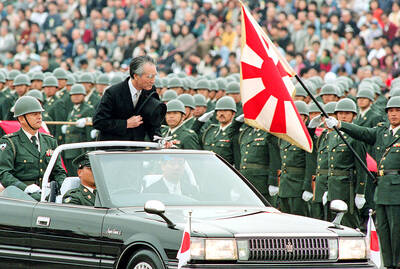US President Barack Obama and Russian President Dmitry Medvedev talked on Saturday about ongoing negotiations for a successor to an expired nuclear weapons treaty. The Kremlin said the two sides are making “substantial progress.”
An Obama administration official confirmed the two presidents talked by telephone about the negotiations, but had no further details. The official spoke on condition of anonymity because the administration had not announced the discussion publicly.
The Strategic Arms Reduction Treaty (START), expired on Dec. 5. Both governments have spent the past several months negotiating a new pact that would further reduce the size of the nuclear arsenals on both sides.
White House press secretary Robert Gibbs said last week that the two sides are making progress.
The Kremlin statement said the two presidents “continued a detailed exchange of opinions about the results achieved and the prospects of completing work on a document that is of vital importance for strategic stability in the world.”
Medvedev and Obama “noted with satisfaction that the work of the delegations of both countries in Geneva has an intense and purposeful character that makes it possible to speak of substantial progress in the negotiation process,” the statement continued.
The leaders “agreed to tell the negotiators to continue their energetic work without lowering the level and pace of cooperation with the goal of reaching final agreement on all issues,” the statement said.
The expired START treaty, signed by Soviet president Mikhail Gorbachev and US president George H.W. Bush, required each country to cut its nuclear warheads by at least one-fourth, to about 6,000, and to implement procedures for verifying that each side was sticking to the agreement.
Obama and Medvedev agreed at a Moscow summit in July to cut the number of nuclear warheads each possesses to between 1,500 and 1,675 within seven years as part of a broad new treaty.
Meanwhile, the US has begun talks with Russia as well as a UN arms control committee about strengthening Internet security and limiting military use of cyberspace.
US and Russian officials have different interpretations of the talks so far, but the mere fact that the US is participating represents a significant policy shift after years of rejecting Russia’s overtures. Officials familiar with the talks said the Obama administration realized that more nations were developing cyberweapons and that a new approach was needed to blunt an international arms race.
In the last two years, Internet-based attacks on government and corporate computer systems have multiplied to thousands a day. Hackers, usually never identified, have compromised Pentagon computers, stolen industrial secrets and temporarily jammed government and corporate Web sites. Obama ordered a review of the nation’s Internet security in February and is preparing to name an official to coordinate national policy.
On Nov. 12, a delegation led by General Vladislav Sherstyuk, a deputy secretary of the Russian Security Council and the former leader of the Russian equivalent of the National Security Agency, flew to Washington and met with representatives from the National Security Council, State Department, Department of Defense and the Department of Homeland Security. Officials said the two sides made progress in bridging divisions that had long separated the countries.
Two weeks later in Geneva, the US agreed to discuss cyberwarfare and cybersecurity with representatives of the UN committee on disarmament and international security. The US had previously insisted on addressing those issues in the committee on economic issues.
The Russians have held that the increasing challenges posed by military activities to civilian computer networks can be best dealt with by an international treaty, similar to treaties that have limited the spread of nuclear, chemical and biological weapons. The US had resisted, arguing that it was impossible to draw a line between the commercial and military uses of software and hardware.
Now there is a thaw, said people familiar with the discussions.
“In the last months there are more signs of building better cooperation between the US and Russia,” said Veni Markovski, a US-based adviser to Bulgaria on Internet security and representative to Russia for the organization that assigns Internet domain names. “These are signs that show the dangers of cybercrime are too big to be neglected.”
Also See: Pressure is growing for Obama to take action on cyber security

The Venezuelan government on Monday said that it would close its embassies in Norway and Australia, and open new ones in Burkina Faso and Zimbabwe in a restructuring of its foreign service, after weeks of growing tensions with the US. The closures are part of the “strategic reassignation of resources,” Venezueland President Nicolas Maduro’s government said in a statement, adding that consular services to Venezuelans in Norway and Australia would be provided by diplomatic missions, with details to be shared in the coming days. The Norwegian Ministry of Foreign Affairs said that it had received notice of the embassy closure, but no

A missing fingertip offers a clue to Mako Nishimura’s criminal past as one of Japan’s few female yakuza, but after clawing her way out of the underworld, she now spends her days helping other retired gangsters reintegrate into society. The multibillion-dollar yakuza organized crime network has long ruled over Japan’s drug rings, illicit gambling dens and sex trade. In the past few years, the empire has started to crumble as members have dwindled and laws targeting mafia are tightened. An intensifying police crackdown has shrunk yakuza forces nationwide, with their numbers dipping below 20,000 last year for the first time since records

EXTRADITION FEARS: The legislative changes come five years after a treaty was suspended in response to the territory’s crackdown on democracy advocates Exiled Hong Kong dissidents said they fear UK government plans to restart some extraditions with the territory could put them in greater danger, adding that Hong Kong authorities would use any pretext to pursue them. An amendment to UK extradition laws was passed on Tuesday. It came more than five years after the UK and several other countries suspended extradition treaties with Hong Kong in response to a government crackdown on the democracy movement and its imposition of a National Security Law. The British Home Office said that the suspension of the treaty made all extraditions with Hong Kong impossible “even if

Former Japanese prime minister Tomiichi Murayama, best known for making a statement apologizing over World War II, died yesterday aged 101, officials said. Murayama in 1995 expressed “deep remorse” over the country’s atrocities in Asia. The statement became a benchmark for Tokyo’s subsequent apologies over World War II. “Tomiichi Murayama, the father of Japanese politics, passed away today at 11:28am at a hospital in Oita City at the age of 101,” Social Democratic Party Chairwoman Mizuho Fukushima said. Party Secretary-General Hiroyuki Takano said he had been informed that the former prime minister died of old age. In the landmark statement in August 1995, Murayama said